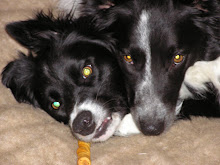I did a bit of running around yesterday, so I didn't get as much reading done as I had hoped. Today we're going out to birthday lunch with Peter's parents for me and Peter's dad (Early for mine, late for his.), and my Wolves are playing the Chicago Bulls tonight at 6:00. I might be a little short on reading time today, too. But that doesn't mean I've gotten none in at all!
I'm working diligently at
How to Think About the Great Ideas: From the Great Books of Western Civilization
, and in last night's reading I came across a discussion about laws. Specifically, are laws only rules written by men and only as valid as the means to uphold them, or are there natural laws, inalienable rights, that are outside the realm of man to meaningfully legislate? This question led to a short discussion about the American Constitution and, assuming the latter argument is correct, how we have altered that document as we learn more about the rights of human beings. Examples would be the abolition of slavery and women's right to vote. I liked that we can continue to learn and grow in our understanding of natural rights, that prejudices that are acceptable now can become intolerable in the future. We still have a long way to go, but we can get there and we can help other nations get there, too.
I've been enjoying this book so much that during my trip to the library I picked up Mortimer Adler's
The Great Ideas: A Lexicon of Western Thought
in which he discusses each one of the
103 Great Ideas in greater detail. I may have to find a copy of this one to keep for myself. It would be a really good reference book to have around as I contemplate this
self-teaching thing.
I also finished up the first book of
The Faerie Queene
. I'm not going to pretend I'm soaking up all the subtleties of this poem, not even close. But I am enjoying it immensely! Knights and ladies, witches and dragons, battles between good and evil. . . What more can a girl ask for? :-) My favorite part is still the parade of Lucifera's advisers in Book I, Canto IV. Here is part of the description of the adviser Gluttony:
And by his side rode loathsome
Gluttony,
Deformed creature, on a filthie swyne,
His belly was vp-blowne with luxury,
And eke with fatnesse swollen were his eyne,
And like a Crane his necke was long and fyne,
With which he swallowed vp excessiue feast;
For want whereof poore people oft did pyne;
And all the way, most like a brutish beast,
He spued vp his gorge, that all did him deteast.
Ewww! You can picture it so clearly though, can't you? You know what I thought of the whole time? Remember the movie "
The Dark Crystal"? Remember the Skeksis?

That's what I pictured through that whole section of the Canto. And now I really need to see that movie again. It was so good!!
I think that's it for my Reading Notes update. I hope you're all doing fabulously well!
Happy Reading!


















